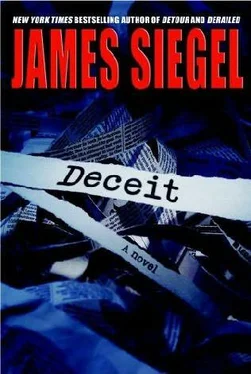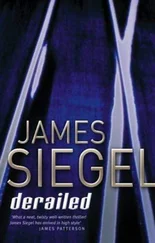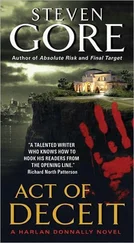No Wren.
I turned around and peered out at the lake.
Nothing-no boats or swimmers. No fishermen, either. Just tiny skittish ripples being stirred up by a rapidly growing breeze. Which reminded me-it was certifiably cold now. I was wearing proper attire for Littleton in June. A faded New York Yankees T-shirt with Pettitte on the back-a testament to Steinbrenner’s formidable wheeling and dealing, since Andy Pettitte, like me, was long gone from New York-but not much protection against a Bluemount Lake night. I had a windbreaker in the trunk, but I wasn’t sure if it would help much.
What to do?
I felt funny about just walking in and making myself at home. It wasn’t my home-it belonged to somebody else. Not a friend, either. Someone who’d called me a fraud and meant it. He might not like coming home and seeing this selfsame fraud sitting on his couch. It might offend him.
I went back to my car, took my windbreaker out of the trunk, and quickly pulled it on. I slid into the front seat, made sure the windows were rolled up tight, and began waiting it out.
It quickly got dark.
It was worse than desert dark. There you had the moon. Here it was blotted out by the overhanging trees, though I could see its reflection flickering on the far edges of the lake like hot licks of flame.
I put on the radio for comfort, but managed to get only the faint echo of a classical station from Sacramento. Now for some Debussy , the gravel-voiced host intoned. Which reminded me of a joke I couldn’t quite recall, something about men being attracted to strange Debussy, something like that, trying to reconstruct it in order to have something to do.
I wondered if I’d gotten the day wrong. Had I told him next week? No, I clearly remembered telling him I’d be coming up today-probably late, depending on traffic, but today for sure.
So where was he?
Maybe he’d gone fishing and had an accident. The boat tipped over, he hit his head on a rock, and right this minute he was lying unconscious somewhere out on the lake. Or worse.
What then?
I couldn’t sit out here in the car forever.
I could drive back.
One look at the solid wall of black that was the surrounding forest instantly dissuaded me.
You couldn’t tell where the road in was. Not anymore. Besides, road was being generous. I pictured my Miata stuck in some unseen hole, myself stumbling around the tree trunks like Tom Hanks in Cast Away -the second half of the movie, when he’d already begun conversing with bloodstained volleyballs.
I stayed put.
I listened to Beethoven, Liszt, Chopin.
My mom had signed me up for piano lessons when I was 11, after a teacher going door-to-door selling the benefits of a musical education had caught her at the opportune time-half-coherent and full of magnanimity. I’d liked the lessons about as much as the teacher, who had to constantly hound my mom to pay her, and occasionally had to ride the right pedal in order to drown out the sounds of a furiously squeaking upstairs bed.
“And now a lovely little concerto from Schubert,” the radio host whispered, like a PGA announcer during a crucial putt, classical music evidently demanding a kind of hushed reverence.
Was I sleeping by then? I don’t know.
I heard the forest whispering at me. The wind through the leaves.
But it seemed to be saying something.
Listen.
The crunch of boots on dead leaves. Someone had walked up to the car. Someone was standing there.
Outside my window. Looking in at me.
He’s sleeping…
The person was carrying something. He raised it up over his shoulder. A long-handled ax? A mud-covered shovel? Something long, heavy, and lethal.
He was going to shatter the windshield into smithereens.
He was going to smash me to bits.
Stop…
When I sputtered awake, no one was there.
I was shivering.
I left the car and walked back up the porch into the cabin.
The cast-iron stove was still going, but barely. There was a pile of chopped wood in the back of the room. I threw two logs into the stove and stood there as the fire combusted again, rubbing my arms in an attempt to wring the chill out.
I pushed some books aside to make a place to sit down. The couch smelled faintly of fish.
After a while, I began leafing through some of his stuff. Anything in arm’s range. Why not-I was bored. The books reflected the same eclectic taste I’d seen in my basement-everything from a paperback of Lolita to a biography of Enrico Fermi. They were stuffed with ad hoc bookmarks-a grocery list, a movie ticket stub, a letter. I opened the letter and peeked, wondering if any minute Wren would come charging through the door to discover me reading his personal correspondence. From a Dearborne Labs in Flint, Michigan: To Mr. Wren , it said in the dry, passionless tone of official bad news. Preliminary results of your specimens have confirmed your concerns. Please see attached lab workup.
Was Wren sick? Was that why he’d gone off the deep end back in Littleton? Why he’d buried himself out here?
The attached workup was no longer attached.
I was looking for it when my cell phone rang.
“You there yet?” a voice said.
There where ? I thought. It took me a second to realize it was Wren. He didn’t sound particularly friendly.
“Yes. I’m in your cabin. Where are you?”
“How long you been waiting?” he asked.
“A couple of hours, I guess.”
“Uh-huh. I had to go into Fishbein for supplies.”
Fishbein. I thought, where’s that?
“My truck broke down,” he said. “Can’t get it fixed till tomorrow.”
“You’re in Fishbein?”
“That’s right. Why?”
“I thought…”
“What?”
“I thought someone walked up to my car before. I must’ve been dreaming.”
“Uh-huh. So, you’re sitting in my cabin ?”
I thought there was something lurking in his tone. “Yes. Nice fishing rods,” I said, attempting to deflect it.
There were three of them leaning against the wall.
I’d done a story on a trout-fishing contest in Vermont-a legitimate story, actually getting on a plane and traveling two hours down back roads to a roaring stream near the Canadian border. Professional fishermen were as protective of their rods as professional baseball players were of their Louisville Sluggers. The ones against the wall looked kind of expensive.
“They’re okay,” Wren answered.
I asked him what kind they were. Trout rods , he said. Then I asked him if he lived alone.
“That’s right,” he said. “Why?” When I didn’t respond, he said: “Oh, the voice mail.”
We’re out fishing, but if you’d like to leave a message, fine.
“Old habit,” he said. “Always pretend there’s more than one of you-if someone’s planning to rob you, it’ll make them think twice.”
I wondered who might want to rob a cabin in the middle of nowhere. A fishing-rod thief, maybe.
“Well,” I said, “are you coming back?”
“I told you. My truck broke down. I can’t get it fixed till tomorrow.”
“Oh.”
I’d traveled two days; Wren wasn’t here.
“Well, maybe I can come to you?” I asked.
“Sure. If you want to get lost, you could. Drive into the woods now and they won’t find you till next year.”
“That’s great. I drove a long way to see you. All the way from Littleton.”
“Boo hoo,” he said. “You came for my notes . I found them.”
Judging by the look of the place, that might’ve been more difficult than it sounded. There was stuff everywhere-newspapers, dirty clothes, ripped magazines, scribbled-on legal pads. Not to mention dire-sounding notes from laboratories in Michigan.
Читать дальше












